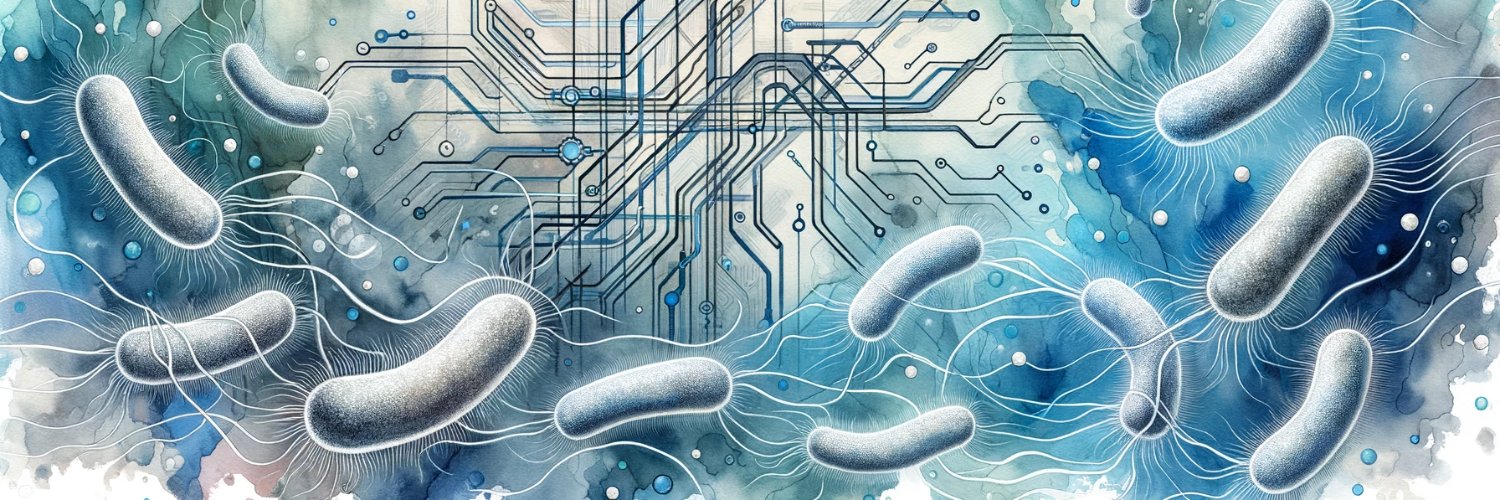
Harrison Steel
@Harrison_Steel
Associate Professor at the University of Oxford, Monash Scholar
We are hiring a Postdoc to work on a collaborative "Living Manufacturing" project alongside Martyn Dade Robertson, Meng Zhang, and @ProfTomEllis. We're developing novel hardware and wetware to create a novel bioprinting platform! tinyurl.com/2udp3seh
Great to see the points highlighted by our lab’s submission, such as the need for long-term funding and developing standards, in the House of Lords Engineering Biology report! The work to make the UK a leader has been astutely laid out, now let’s get going tinyurl.com/33xuh2er
I have an exciting PhD position available in my group in collaboration with P&G, combining Synthetic Biology & Computational Biology to develop novel metal-binding peptides to replace non-biodegradable chemicals. findaphd.com/phds/project/d…
Antiviral therapy design is myopic 🦠🙈 optimised only for the current strain. That's why you need a different Flu vaccine every year! Our #ICML2025 paper ADIOS proposes "shaper therapies" that steer viral evolution in our favour & remain effective. Work done @FLAIR_Ox 🧵👇
NEW PREPRINT! Do you think we can do better when characterising resource competition properties of gene circuit modules? If no, think again; if yes, you’re in for a pitch how exactly we can do that – automated culturing, cybergenetic control and all! 1/ doi.org/10.1101/2025.0…
Hope I’ve gotten you interested enough to go and read our paper for details! And the best way I can conclude is by thanking the editors & reviewers, @Harrison_Steel for supervision and coauthorship, and @Andreas_Porse and other Steel Lab members for their great advice! 10/10
Many thanks to my supervisor @Harrison_Steel , as well as my fellow contributors @vicente_trelles , Ting Lee, Jess James, Marco Corrao, @Lisa_Zillig and @ScottBStacey1
Great to see this report and its recommendations come out now. 🧬⚙️ Engineering Biology is a key opportunity for growth in the UK, and a concerted effort is needed to get it right. Check out the thread here and give yourself a few minutes to read this important report too. 👇
Today, the House of Lords Science and Technology Committee has published its report into engineering biology, entitled: “Don’t fail to scale: seizing the opportunity of engineering biology”. Read it here: publications.parliament.uk/pa/ld5901/ldse… and watch our Chair discuss 1/
Our Control Group @oxengsci is hiring a new Associate Professor! This is a permanent/tenured academic position; anyone with research interests in theory/applications of control (including Biotech!) is encouraged to apply by 13 January 2025. eng.ox.ac.uk/jobs/job-detai…
Thank you Associate Professor @Harrison_Steel of @UniofOxford for an engaging opening #keynote presentation on Cybergenetics: Synthetic Biology meets Robotics and AI. #CoESB24 #SyntheticBiology
This is epic. Saw talk on this today and such a clever mix of physics and engineered biology!
New paper with novel biological quantum effects measured for the first time - and developed for applications in Synthetic Biology!
New paper with novel biological quantum effects measured for the first time - and developed for applications in Synthetic Biology!
Some exciting results to share! The MagLOV and related proteins from @AndrewGYork and @Maria_Ingaramo are quantum. We measured 4% optically detected magnetic resonance contrast in living bacterial cells at room temperature. biorxiv.org/content/10.110…
Welcome back to day 2 of @BiochemSoc's SynBio UK 2024 #SBUK24 conference! Kicking off Control Systems this morning is @Harrison_Steel with a great run through of his work - from use of microfluidics for directed evolution to fluorescent magnetic and RF sensor development
My supervisor @Harrison_Steel explains how and why we use #control in SynBio. For one, it makes directed evo more efficient by observing & steering *very many* *individual* cells with microfluidics! Works really well if you're selecting for growth-uncorrelated traits 2/
Excited to share that I will soon be starting a group at @UniofOxford in the Dept of Engineering Science. We will focus on data-driven methods for cell-machine interfaces, with applications in biomanufacturing, biomaterials, fundamental biology research, and more